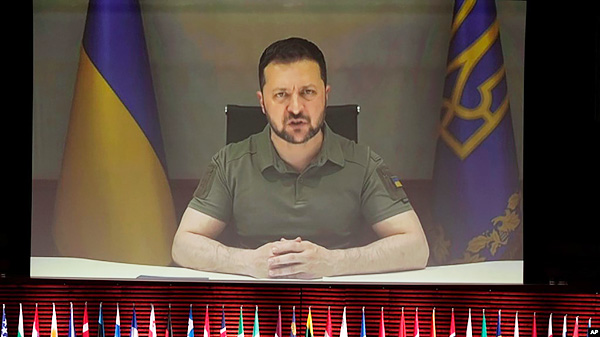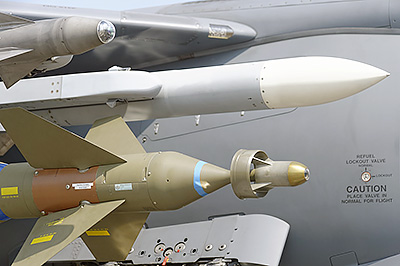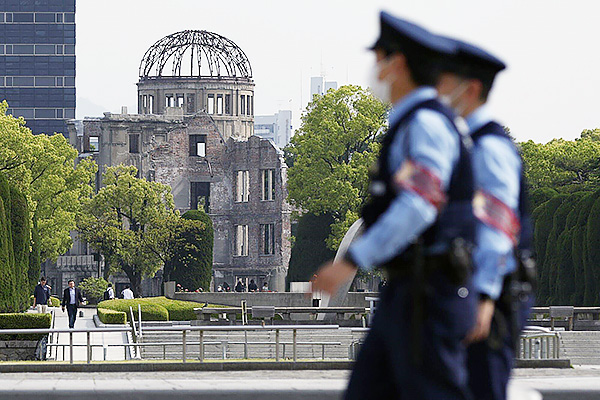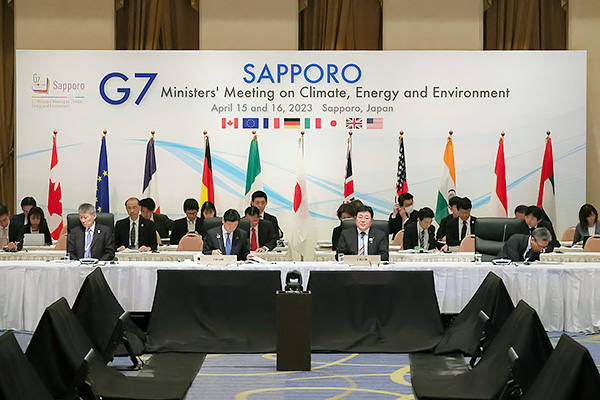These notes and suggested Prayer Pointers are to help provide some background and a starting point for us as we pray into the publicised agenda for the three-day G7 Summit.
Before we begin, we are reminded of 1 Timothy 2:1-4 (NLT):I urge you, first of all, to pray for all people. Ask God to help them; intercede on their behalf, and give thanks for them. Pray this way for kings and all who are in authority so that we can live peaceful and quiet lives marked by godliness and dignity.
You may also like to use these themes and the accompanying scriptures to meditate and focus your thoughts.
Here are some of the key issues on the agenda, along with suggested prayer points to start us off in our prayers:
The G7 leaders are gathering in Hiroshima for their annual summit, with a strong focus on emphasizing unity and support for Ukraine. The meeting holds significance not only for the G7 as a whole, which has faced challenges in defining its purpose in recent years, but also for Japan as the host country, as it navigates an increasingly complex security environment. Diplomats expect discussions at the summit to center around backing Ukraine as it prepares for a counteroffensive against Russia. The G7 leaders are reportedly working on a separate document specifically addressing Ukraine to underscore their unwavering support for the country. The document will highlight the G7's unity in enforcing tough sanctions against Russia and offer additional financial support for Ukraine's reconstruction efforts.

The leaders aim to discuss ways to resolve the conflict in eastern Ukraine and express their concerns about human rights violations in the region. They emphasize the importance of upholding Ukraine's territorial integrity and seeking a peaceful resolution through diplomatic means. It is also reported that the G7 is considering the imposition of new sanctions on Russia as part of efforts to bring an end to the Ukraine war. G7 leaders are contemplating this action in response to the ongoing conflict in eastern Ukraine. The imposition of new sanctions could be seen as a means to deter further aggression, encourage compliance with international norms, and support Ukraine's territorial integrity.
The G7 summit will also explore the possibility of negotiations to end the Ukraine conflict. The leaders will assess the conditions required for progress on the battlefield and potential future talks. However, Ukrainian President Volodymyr Zelenskyy is reluctant to engage in peace negotiations while Russian troops remain on Ukrainian soil. China's role in resolving the conflict may also be discussed, as Beijing has significant influence over Moscow.
Heavenly Father,
In this time of gathering at the G7 summit,
We pray for unity and strength among the leaders,
May they emphasize their unwavering support for Ukraine,
Grant them wisdom and guidance as they discuss ways to bring peace,
May their actions reflect a commitment to justice and security.
In Your mercy, hear our prayer.
Gracious God,
We lift up the people of Ukraine in prayer,
May they find hope and solace in the knowledge that they are not forgotten,
Strengthen their resolve as they prepare for a counteroffensive,
Grant them courage and protection in the face of aggression,
We pray for effective negotiations to end the conflict,
May the leaders find paths to peace and reconciliation,
In Your grace, hear our prayer.
Loving Lord,
In the midst of discussions on Ukraine and beyond,
We ask for your divine intervention and guidance,
Bless the G7 leaders with clarity of vision and purpose,
May their words and actions reflect a commitment to justice,
Give them the wisdom to address regional security concerns,
We pray for the well-being of all nations affected by conflicts,
May peace prevail, and may the innocent find safety,
In Your compassion, hear our prayer.
Hiroshima stands as a powerful symbol of both the devastation of war and the potential for prosperity through peace. It stands as a remarkable recovery following the unparalleled destruction caused by the first purposeful use of an atomic bomb in human history ― a testament to the resilience of its people. Against the backdrop of Russia's aggression toward Ukraine, some nations are heightening their reliance on nuclear deterrence, making advocating for nuclear disarmament more challenging than ever. As the G7 Summit convenes in Hiroshima this month, it presents an ideal opportunity for global leaders to reaffirm the inhumanity of nuclear weapons and the crucial need for their elimination.

Prime Minister Fumio Kishida of Japan will focus on promoting a "world without nuclear weapons" and pursuing new initiatives for disarmament. However, concrete deliverables such as binding commitments or agreements to reduce nuclear arsenals are unlikely to emerge from the summit. The main aim is to establish a consensus on approaches to nuclear arms control and create conditions for eventual disarmament.
He plans to reiterate the five pillars of the Hiroshima Action Plan, including reducing nuclear stockpiles and disclosing information on fissile materials. While Japan's selection of Hiroshima as the summit venue raises expectations for substantial progress on nuclear disarmament, experts believe that immediate actions are unlikely due to the complex international security environment. The ongoing conflicts in Ukraine and tensions in the Indo-Pacific region make it difficult to achieve near-term progress. Additionally, since G7 countries rely on nuclear deterrence, major nuclear-armed states like Russia, China, and North Korea are unlikely to change their stance on nuclear weapons soon.
Overall, while the G7 summit aims to foster disarmament and revive nuclear arms control, immediate concrete steps may be limited. The focus will be on establishing a roadmap and consensus on approaches, acknowledging the challenges of the current security landscape and the need for ongoing dialogue and trust-building efforts to achieve nuclear disarmament.
Heavenly Father, we pray for the leaders gathering at the G7 summit in Hiroshima. Grant them wisdom and guidance as they discuss nuclear disarmament and seek new initiatives for peace. Help them foster a spirit of cooperation and understanding, and may their discussions lead to tangible progress in reducing nuclear weapons worldwide. Let this summit be a stepping stone towards a safer and more peaceful world.
Lord, we lift up the people affected by nuclear weapons, especially the survivors of the Hiroshima bombing. Comfort them and heal their wounds, both physical and emotional. May the leaders visit the Hiroshima Peace Memorial Museum and listen with open hearts and minds, gaining a deeper understanding of the devastation caused by nuclear weapons. Inspire them to work tirelessly towards disarmament, ensuring that such horrors are never repeated.
Gracious God, we pray for a renewed commitment to global security and disarmament. As tensions rise and nuclear arsenals grow, we ask for a change of hearts and minds among nations. Help us break the cycle of fear and distrust, replacing it with a genuine desire for peace and cooperation. Guide the G7 leaders in their efforts to promote transparency, dialogue, and trust-building, ultimately paving the way for a world free from the threat of nuclear weapons.
Japan's G7 presidency emphasizes the importance of economic security as a component of national security and aims to enhance international collaboration in this area. While Japan has made significant progress in economic security policies, other countries and blocs are also advancing their own agendas. The concept that "economic security is national security" was introduced by the Trump administration, and the rising threats posed by China's assertiveness and Russia's actions highlight the need to address economic security concerns.

The European Union is developing tools to strengthen supply chain resilience, export controls, and investment screening, while the US takes a more expansive approach to economic security, and Japan and the EU prefer a less China-centric perspective. To promote discussions at the G7, it is important to focus on specific practices like economic coercion and goals such as supply chain resilience, rather than a China-centric view.
Managing trade-offs between economics and national security is crucial, as trade restrictions can undermine the benefits of an open economy and the use of "national security exceptions" risks undermining the rules-based trading system. Balancing competition and cooperation for critical minerals is also necessary, even among G7 members.
To advance a cooperative economic security agenda, G7 members need to look beyond developed countries and engage with the Global South, particularly in building resilient supply chains and promoting infrastructure investments and trade agreements to elevate low- and middle-income countries. Economic security extends beyond the G7 partnership.
Lord, we pray for leaders involved in economic security discussions. Grant them cooperation and understanding, leading to a stronger global economy. Guide them to prioritize the well-being of all nations. Amen.
Heavenly Father, grant leaders wisdom in balancing economics and security. Help them make decisions that protect nations without hindering open economies. May they promote cooperation and peace. Amen.

The G7 explicitly recognizes the need to accelerate the phase-out of “unabated” fossil fuels to achieve net zero energy systems. However there is not consistent evidence that this is being put into action.
Therefore, the G7 nations, historically significant contributors to climate change, have been urged to enhance their renewable energy ambition. In response, the G7 members have made commitments to address climate change. They aim to increase solar capacity to over 1 terawatt and offshore wind to 150 gigawatts by 2030. They also discuss decarbonizing the power sector and achieving 100% electrified vehicles in new passenger car sales by 2035.
However, phasing out coal alone without addressing other fossil fuels places disproportionate pressure on emerging countries in the Global South, like India. Moreover, the G7's promise to invest $100 billion to assist the Global South in climate adaptation and mitigation has been delayed and broken. Developed countries must play a larger role in deploying clean energy technologies, supporting research and development, and providing access to technology and finance for Global South countries.
With time running out to limit global temperature rise, people will be looking for the G7 to set more ambitious targets and commitment dates to phase out all fossil fuels. Urgent action is needed before it becomes too late to mitigate the climate crisis.
Heavenly Father, we pray for the G7 nations as they navigate the path towards a sustainable future. Grant them wisdom and courage to take bold actions in phasing out fossil fuels and embracing renewable energy. May their commitments be matched by tangible progress, bringing us closer to a world free from the threat of climate change.
Lord, we lift up the Global South countries who face the challenges of meeting their energy needs while striving to combat climate change. Grant them support and resources from the G7 and other nations, that they may access clean energy technologies, receive financial assistance, and build sustainable infrastructure. May they be empowered to develop and thrive in an environmentally conscious manner.
Gracious God, inspire the leaders of the G7 to recognize the urgency of the climate crisis and the importance of collective action. Help them rise above political and economic interests, setting more ambitious targets to phase out all fossil fuels. May their decisions reflect a deep commitment to stewarding your creation and ensuring a safe and sustainable future for generations to come.
Japan faces many crises. Even its leaders called it “a superpower without a moral compass”. Many lack hope or confidence in the future. Young people struggle the most, in particular with problems such as a suicide epidemic (over 30,000/year), mistreatment by peers, and teenage prostitution. High suicide and divorce rates in other age groups confirm the crisis. The constant threats of earthquakes, economic decline, and social isolation leave many people open to spiritual matters. The government alone cannot solve Japan’s social problems. This gives the Church a chance to engage with society. Pray that the Church might become prominent in Japan through ministries of compassion, kindness, and love.
Specific challenges facing the Church:
Mission to Japan - Japan is the largest unevangelized nation that is completely open to missionaries. Yet, due to spiritual, socio-cultural, linguistic and financial difficulties, becoming an effective minister of the gospel is a long, hard process of adaptation.
The less-evangelized areas and peoples of Japan:
Christian literature. In no other country of the world is literature more appropriate for evangelism. A highly literate, reading, commuting society offers an excellent market for publishing and distributing high-quality Christian literature. Pray for:
Christian media are very valuable in technologically astute Japan. Pray for these:
MORE INFORMATION

Join many people around the world Praying for Japan through Love Japan https://www.lovejapan.world/en/home-en/
Get all of this content and daily notifications in Operation World’s free mobile app. Download here › https://operationworld.org/prayer-resources/prayer-app/
Sign up for a daily e-mail that gets you the featured prayer point of the day straight to your inbox. https://operationworld.org/get-involved/newsletter/
This content is a curated selection of points from Operation World’s book, Operation World. Find out more about it and all the rest of their Publications › https://operationworld.org/publications
Content taken or adapted from Operation World, 7th Edition (2010) and Pray for the World (2015). Both books are published by InterVarsity Press. All rights reserved.
Postal Address: PO Box 17971, Birmingham, B2 2NY.
© Copyright 2023 G7 Prayer Summit. All rights reserved. Site by APWD.
The World Prayer Centre is a company limited by guarantee registered in England No.3601828. Registered Charity No. 1072222
Image credits: Tomas Malik, Jeff (Pexels), 邱 韬, Virdventure, Satoshi Hirayama